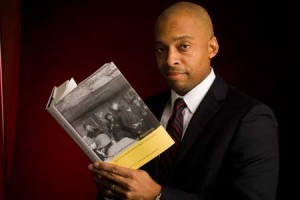 While I listened to radio reports about the killing of Michael Brown by a Ferugson police officer, I heard
While I listened to radio reports about the killing of Michael Brown by a Ferugson police officer, I heard who a man introduced, I think, as a Missouri State Police captain. In his attempt to explain the larger context for why Brown’s death is not merely or simply an accident or even the act of one individual, he described what he observed as communities “entrenched in paradigms.” Indeed, as a state trooper and an African-American, he explained the dire consequences for such communities that are perpetually at odds with each other.
His notion of “entrenched paradigms” led me back to a book I have assigned for the upcoming fall semester in an American Studies course. The book is The Condemnation of Blackness: Race, Crime, and the Making of Modern Urban America. The author is Khalil Gibran Muhammad, the Director of the Schomburg Center for Research in Black Culture at the New York Public Library. He is also, as you might know, the great-grandson of Elijah Muhammad and the son of Ozier Muhammad, a New York Times photographer. A few months ago, Tom Sugrue had alerted folks on Facebook to a talk that Muhammad gave. Sugrue said it was a fantastic talk, and I take that as very high praise. Muhammad’s basic argument is that there exists a paradigm of “black criminality” that has been historically constructed and continues to be used as if it is statistically verifiable as truth. In his book, he looks, in part, at how “black scholars and activists pursued something akin to color-blind criminal justice by arguing that equal treatment was the first step toward disentangling race and crime, destroying a pillar of racism, and creating a society in which blacks, like their white immigrant counterparts, were included within, as Du Bois wrote, the ‘the pale of nineteenth-century humanity.'” (3)
I have not read enough of the Muhammad’s book to give it the S-USIH treatment, so instead, I point readers to his talk he gave this past April on the book and his research for it.

0